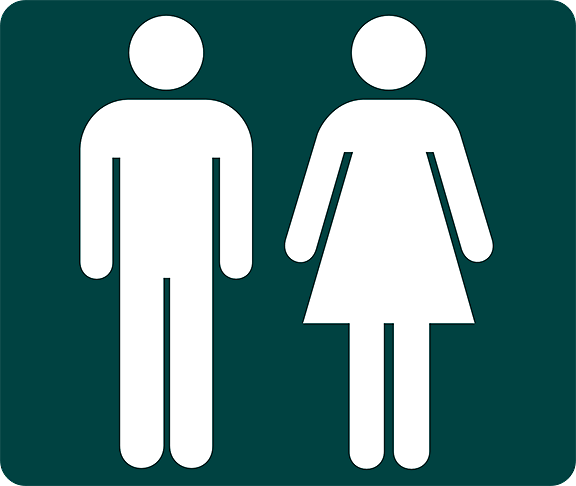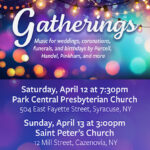Sticks and Stones Through Time
In, “Hell and Other Destinations,” the former and first female secretary of state, Madeleine Albright, suggests we need to know that many Americans from South America, Central America and other nations in North American find it curious that many U.S. citizens regard only other U.S. citizens as Americans. (And sometimes not all of them.) Perspectives differ.

I went light on the pronouns in the preceding sentences. Writers should leave no doubt as to which nouns the pronouns they use refer. Grammatically, pronouns serve to facilitate communication by eliminating the repetitious use of subject and object nouns. In casual conversations, use of personal pronouns is becoming more complicated within the larger circle of already fraught we/they/us/them and he/she discussions.
Our understanding of some nouns has changed.
In June, the Supreme Court of the United States held that the Civil Rights Act of 1964, which prohibits employment discrimination on the bases of race, color, religion, sex, and national origin, applies to gay and transgender individuals. In 1964, most people understood the term “sex” to the male and female genders, and to sexual activities themselves. In the film based on real events, “On the Basis of Sex,” Ruth Bader Ginsburg’s secretary/ legal assistant suggests to Ms. Ginsburg that she substitute the term gender for sex in a legal brief, because the term sex might conjure up salacious or yucky imagery.
In his dissenting opinion in the June 2020 SCOTUS ruling, Justice Samuel Alito argues that in 1964, the term “sex” meant neither gender nor sexual orientation. In the June 23 New York Times, MIT Assistant Professor Devin Michelle Bunten argues that terms such as “gender” and “sex” erase the identities of non-binary and trans people.
In terms of descriptive categories, it seems logical that gender includes everyone. Specific gender subsets exist within the larger group. And shouldn’t civil rights apply to everyone? That is the American Way, isn’t it?
Historically gender restrictions have tipped heavily against women. While most people no longer use ethnic or racial slurs, or at least in public, it is still common for “some people” to use gender slurs mostly related to sexuality, to describe women. Some women use gender slurs against each other.
I play golf. I once heard that golf is an acronym for “Gentlemen Only Ladies Forbidden.” My own internet research and a recent article in Table Hopping suggest that term golf originates from the Scottish term for “strike” and perhaps from the Germanic word for “club.” And, while golf is not for gentlemen only, the rules of golf acknowledge physical differences based on gender and age: there are men’s tees, ladies’ tees, and senior citizen tees. The game follows the rules of Golf, and then, committee rules, local rules, league rules, seasonal rules, and stroke play and match play rules. When I was a newcomer to the sport, fellow golfers at Burnet Park Golf Course Club House, male, presented to me the Junior Golf Foundation’s, “A Summary of The Rules of Golf” and, later, offered to lend me the clubhouse copy of Kellie Stenzel’s “The Women’s Guide to Golf: A Handbook for Beginners,” a book I’d already purchased, was studying and still review. In 2015, both books were new to me and helpful. Neither book provided rules or etiquette guidance for playing golf during a pandemic.
To help golfers from having to touch pins and reach into cups touched by other golfers during this time of COVID 19, most courses have fitted cups with foam liners which variously could be above, below, or even with the level of the green. Some courses have installed cups which rise 1” above the green and block access to the hole, or have installed raised cups which, while below the green surface, are shallower than a normal cup. From what I’ve read and seen posted at courses, during COVID 19 play, if a golfer’s ball hits the pin, the golfer has cupped the ball. Of course, a too fast shot could hit the pin and fly two or three feet sideways while a better putt could gently roll across the foam insert and sit on the edge without touching the pin. And, what about holes in one? One PGA blog suggests that no matter what, it is up to golfers to call their putts in or not. Golf is a game of integrity.
One online dictionary defines “integrity” as: 1. the quality of being honest and having strong moral principles; 2. the state of being whole and undivided; 3. the condition of being unified, unimpaired, or sound in construction; 4. internal consistency or lack of corruption in electronic data.
Integrity requires that individuals and groups not ignore ongoing situations and conditions amid nostalgia for some imagined past. Yesterday’s practices, vernacular and realities have given way to what is happening now. 2020 differs enormously from 2019 which differed from 1865 which differed from 1776 which differed from 800 BC/BCE or 700 AD/CE however you slice it.
Today, personal safe space might protect us both from the Sars-COV-2 virus and from succumbing to the given heat of any newly emerging moment.
I hope the cups on golf courses return to the previous configurations soon.
I hope things get better for everyone.
Happy Independence Day.











